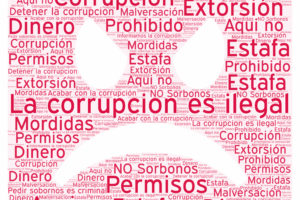Technical staff
November 11, 2021
Corruption is a part of life that cannot be avoided. It can range from little favors to large-scale schemes such as kickbacks and bribes. It’s all wrong, no matter how serious the problem is. Because it is unjust, it is erroneous. It’s unethical since it puts one’s integrity in jeopardy. It is unfair since it is against the rule of law.
Nepotism is one of the ugliest faces of corruption. It exists in most societies and causes damages to many victims.
Nepotism is favoritism extended to relatives, friends, or others without respect for their merit. Throughout history, family members have played an essential role in governance in many cultures. In some cases, these people even ruled as monarchs. As societies became more complex, the importance of family relationships began to wane. Nepotism is now considered a societal disease since it typically leads to the uneven treatment of people who are not linked to those in positions of power.
Damages of Nepotism
The following is an unexhaustive list of damages:
1. Widespread nepotism likely,
(a) Increases corruption levels and renders internal control and governance ineffective,
(b) Lowers employees’ morale and loyalty
(c) Increases employees turnover
(d) Lowers products and services quality
2. Nepotism affects negatively the application of the Ten Principles of Fighting Corruption promulgated by The AACI
3. Increases corruption levels and renders internal control and governance ineffective,
Eradicating Nepotism
To eliminate nepotism, we must first define what it is. We often use the term “nepotism” to refer to a variety of different types of favoritism. More generally, the phrase refers to the hiring or advancement of family or friends, as well as the appointment of such persons by those in positions of power (e.g. politicians) as a means of consolidating power and/or patronage. Such techniques produce unproductive, uneconomic, and sometimes undemocratic effects, and should thus be avoided.
As a result, we can’t rely exclusively on official laws and legislation, which are sometimes devoid of fangs and enforcement. A range of controls and governance methods are required, the most effective of which entails involvement and leadership from individuals in charge of overseeing their companies.
Therefore, we think that eliminating corruption at its source begins with anti-nepotism regulations that must be vigorously implemented and conveyed across an organization.











































